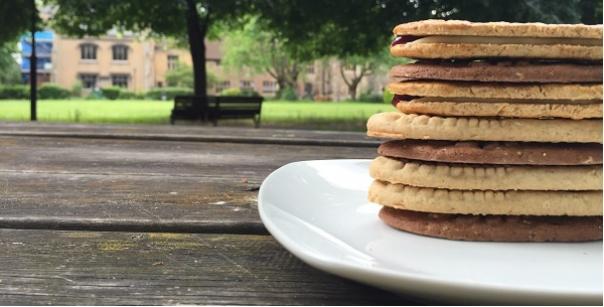74% of biscuits in the UK have 'red' label for sugar, study finds

Undertaken by Action on Sugar at Queen Mary University of London, the study looked at the ‘wide’ variation of sugar and calories in cakes and biscuits sold across the country in 2016.
Highlight ‘shock’ failings include:
- The average sugar content in cakes was 36.6g per 100g
- Despite sugar reduction targets, Lotus Bakeries, Fox’s Biscuits, Pladis UK/McVities and Mondelez all increased sugar in their biscuits
- There is a large variation in sugar content between different categories of cakes and biscuits
Speaking of the findings, Action on Sugar said that such a variation “demonstrates that reformulation can easily be done i.e. if some manufacturers can produce a similar cake with far less sugar or calories, so can others.”
Sugar in a Victoria sponge for example ranges from 23.4 to 59.2g/100g, while breakfast biscuits can contain anywhere between 12.0 and 30.9g/100g.
Calorie-wise, average energy content in biscuits was 484 kcal/100g – with shortbread containing the highest levels and fruit-filled variations the least. Jam and cream-filled biscuits meanwhile ranged from 425 to 558kcal/100g.
Among manufacturers with five or more products, Fox’s contained the highest average sugar content (35.8 g/100g) and Dr. Schar had the highest average energy content (512 kcal/100g).
For cakes, findings showed that branded cakes had a slightly higher sugar content per 100g compared with supermarket own labels. Clocking in the highest average sugar content at 43.1g/100g was McVitie's product range, while Premier Foods contained the highest energy (424 kcal) per 100g.
Kawther Hashem, co-author and registered nutritionist for Action on Sugar, commented: “This research clearly shows the levels of sugar and calories in products can be reduced since there was a large variation in sugar and calorie content within the same category of cakes and biscuits.
“But worryingly, not all manufacturers are complying. If some manufacturers can produce chocolate cake bars with 22% fewer calories per 100 g, so can others.”
Fellow co-author Graham MacGregor added: “Large amounts of cakes and biscuits are consumed in the UK, so a reduction in the amount of sugar and calorie content could play an important role in helping prevent obesity and tooth decay.
“The majority of the food and drink industry in the UK have asked the government for a more robust and mandatory programme of reformulation.
“It is a tragedy for our children that this has not been done.”
Claiming that a reduction in sugar and energy content, and overall cake and biscuit consumption, “can help reduce overall sugar and energy intake in the UK and thus reduce the risk of obesity and tooth decay,” Katherine Hale, head of health information at the World Cancer Research Fund (WCRF), explained: “The difference in levels of sugar in very similar foods that this study has revealed is shocking, but it does show that if one manufacturer can reduce sugar levels in their products, then it is possible for other manufacturers to do the same.
“We now need the government to take stronger action and make it compulsory for food manufacturers and retailers to reduce sugar levels in their products.
“Eating too much sugar leads to overweight and obesity, which our latest cancer prevention report shows is a cause of 12 different types of cancer.
“Healthy lifestyle patterns depend not only on individual choices but also on governments creating an environment that encourages people to eat healthily and do more exercise.
“WCRF calls on the government to prioritise cancer prevention through the development and implementation of effective policies to address the rising burden of obesity and cancer in the UK.”
